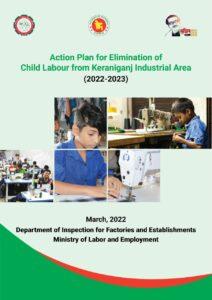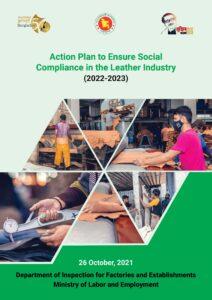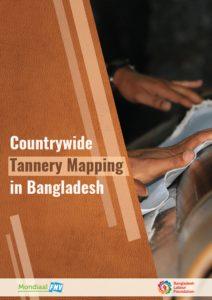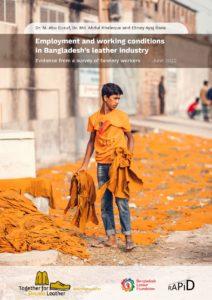Study Report on Occupational Safety And Health (OSH) Situation in Keraniganj Local Readymade Garments

Local readymade garment enterprises located in Keraniganj fulfill around 80 percent of local demand and provide space for the employment of approximately 300,000 people (based on the rough estimation of DIFE). This potential sector is characterised as an urban informal sector based on the type of employment; wage structure; general conditions of work (e.g., piece rate-based wage, hours of work, leave including maternity leave); occupational safety and health; and social services. The informality seems visualised in the infrastructural establishment (fire safety, electric safety and structural safety) also. Consequently, just and favorable working conditions and social protection for the workers are not exhibited. The concentration of child labour is relatively high in this apparel hub. This sector lacks space occupancy (available for a worker), sufficient ventilation, lighting, and access to safe drinking water and sanitation. First-aid facilities and personal protective equipment for dealing with accidents and emergencies are absent at this workplace. The status of Freedom of association and union rights is almost absent in most of the factories also. The right violation of the female and girl child workers are far more acute and distinctive compared to other workers engaged in this sector. The workers are literally unprotected in their working spheres. It marks a lack of awareness and inadequate information and knowledge on OSH including a lack of supervision and monitoring from employers, and state agencies. It is worth mentioning that the Covid-19 pandemic exacerbated the labour rights as well as working conditions in this sector.
In this perspective, comprehensive Occupational Safety and Health (OSH) assessment has been conducted in local readymade garments (LRMG) factories located in Keraniganj. The prime objective of the assessment is to access the existing occupational safety and health management and practices associated with workers in the LRMG factories located in Keraniganj. It also provides recommendations for the improvement of occupational and health management together with the reduction of hazardous forms of child labour.
The specific objectives are:
- To access OSH status from both workers’ and employers’ points of view, existing practices and the extent of implementation of OSH related national laws and regulations at the factory level
- To generate a benchmark following ILO-OSH 2001, and Bangladesh National Building Code (BNBC) protocol and standard for continual improvement of OSH management system incorporating Corrective Action Plan (CAP) with specific corrective actions and sustainable safety culture in the local RMG factory
- To identify key opportunities, constraints and development initiatives needed for promoting the rights of the workers
- To explore gender dimensions and discrimination that persist in the workplace against workers, particularly for female
- Prepare a study report addressing these issues.




